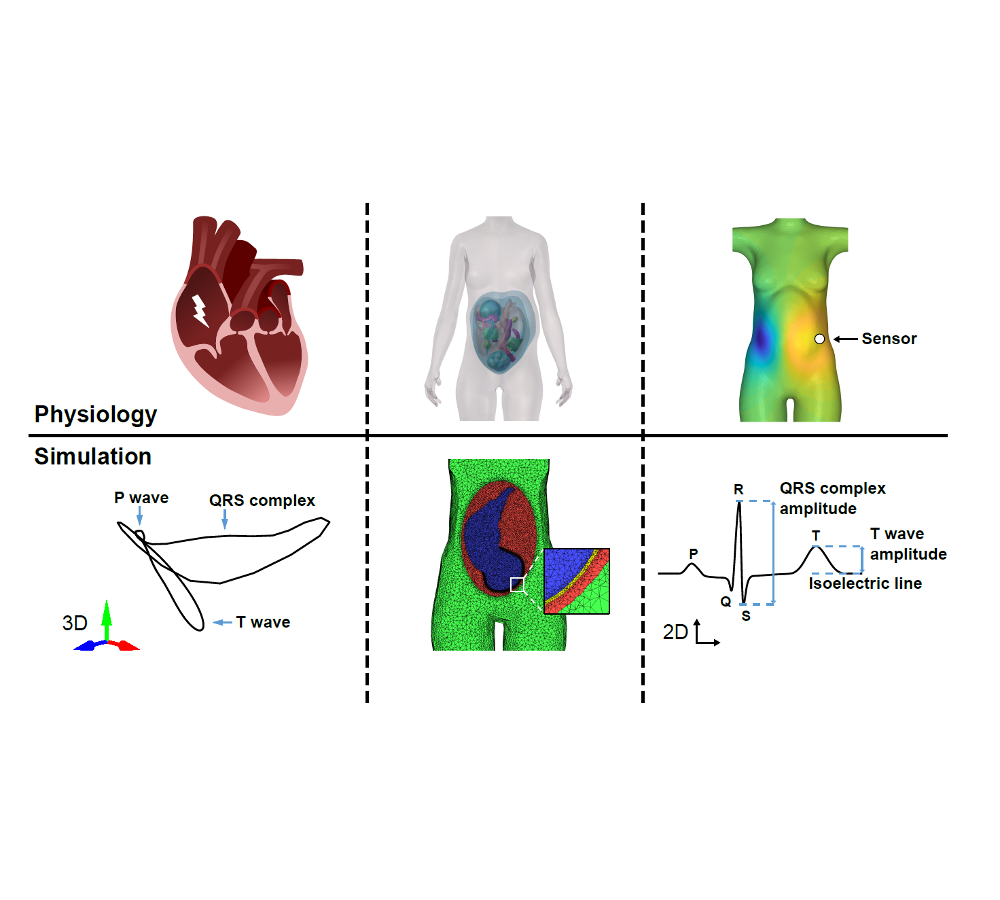Research Projects
1. Non-Invasive Fetal Electrocardiography
2017 - current
Currently, the primary technology used to assess fetal wellbeing is that of ultrasound based cardiotocography (CTG). However, ultrasound devices typically utilise bulky sensors which may drop out with fetal movement, often needing to be repositioned by the midwife or obstetrician. In this project we are developing new methods to monitor fetal wellbeing using an emerging technology known as non-invasive fetal electrocardiography (NI-FECG).

One feature of NI-FECG recordings proposed for identifying fetal distress is the T/QRS ratio, which has been indicated to change in response to fetal hypoxia. As the T/QRS ratio measures characteristics of the heart’s electrical activity in 3D space (represented as the vectorcardiogram), it is critical to understand how changes in the vectorcardiogram and maternal/fetal body composition may influence the reliability of this feature.
To better understand these factors, I have contributed to the open-source fecgsyn toolbox which enables the simulation of realistic NI-FECG signals and benchmarking of fetal ECG extraction techniques. A brief video on these contributions is shown below:Publications
2. Diagnostic Markers of Pregnancy
2019 - 2022
Disorders of the placenta may lead to severe pregnancy complications such pre-eclampsia or fetal growth restriction. To identify and treat these complications more rapidly, recent work has investigated the use of novel biomarkers circulating in the maternal bloodstream. I am working with the incredible Mercy Perinatal team in identifying new biomarkers and developing predictive models to create the next generation diagnostic test for these disorders.
Publications